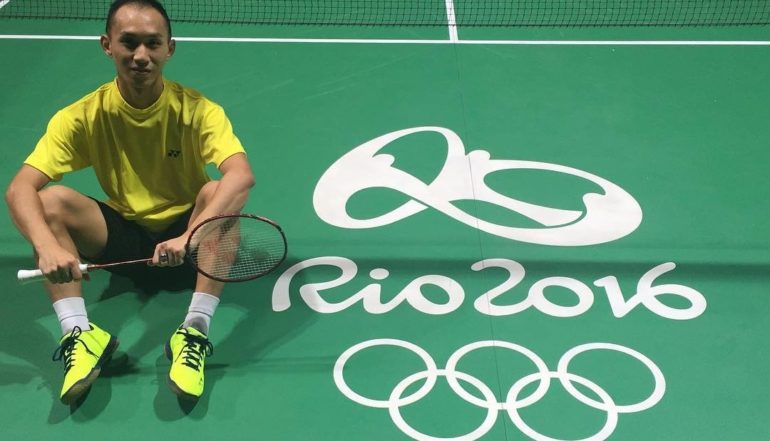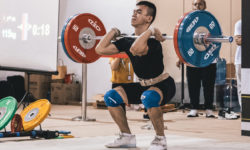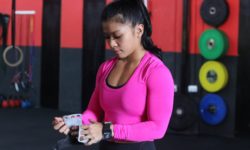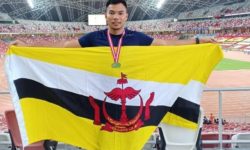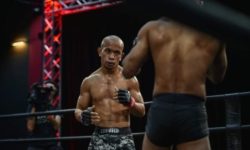Brunei's top shuttler Jaspar Yu Woon Chai, who reached a career-high 199 in the world rankings back in July 2017, recently decided to retire from the sport. Yu became the country's first representative in the sport at the Olympics in 2016. We at BruSports News managed to reach out to Yu, who became the country's first Olympian in the sport at Rio 2016, to find out why he decided to put down his racquet.
Q: Hello Jaspar. Why the decision to retire so soon?
A: I believe we have to give 100% effort in the things that we do or not do it at all. I have dedicated a lot of time for badminton and was very lucky to achieve the Olympics dream in 2016.
I still competed professionally (after the Olympics) in 2017 and 2018 but I had to be honest with myself, I’ve lost the fire inside of me.
On top of dealing with some injuries, I am 31 years of age. I think it is the right call to retire by the end of 2019.
Q: Tell us some things we don't know about Jaspar Yu.
A: When I was 16, I was briefly offered an opportunity to move to Singapore and possibly play for Singapore. The offer never got serious as it was just verbal. Even if it did, I wouldn’t have made the switch anyway.
When I was training in Indonesia, I was coached by Kurniahu. (The father of current Men’s Doubles World no.1 Marcus Fernaldi Gideon.)

I have also spent over a year living and training in Japan, and Japanese cuisine is my favourite.
I was training together with the current Men’s Singles World No.1 Momota Kento during my stint in Japan. Coached by Kawamae Naoki (2008 Beijing Olympian).
Q: How has life changed after you competed at the 2016 Rio Olympics?
A: I don’t see many changes based on my day to day routine. I just kept practising, competing, learning and trying to be better.
Q: If not for badminton, what sport would you be doing?
A: I like football and I’m not very good at it but I enjoy it. I didn’t have much chance for football when I was heavily involved in badminton but now I try to kick about with friends when there is time.
Q: What was the best memory for badminton asides from the Olympics?
A: I’ve lived abroad for training and competing in a few countries, but Japan will always be special and eye opening.
Their work ethics, attitude, conduct towards bettering their craft in the sports are amazing. I am lucky to have learned, adapted and trained with some of the very best, like the current World No.1 Momota Kento.

Q: Do you remember your first ever competition? How did it go down?
A: It was in year 2000 when I was in Primary 6 representing CHMS in the U-12 Interschool Boy’s Doubles. I won the Gold medal.
Q: Despite having retired, what other aims are you looking to achieve in the sport?
A: Now that I have retired from competing, I try to give my best and help the next batch of younger players improve.
My hope is that they can go on and become a great international level athlete.
Q: What do you think makes a good badminton player?
A: Having the proper physical attributes aside, most top badminton players are smart and quick-witted.
After all, badminton is the fastest racquet sport in the world. The ability to think quickly and adapt to changes are important.

Q: We know that your favourite player is Lee Chong Wei. What was the best thing you liked about his game?
A: His determination is very admirable. I have friends who worked and trained close to Dato LCW telling similar stories of how he never gives up, demands and trains to the highest standard everyday. That mindset is amazing!
Q: Do you consider it an end of an era with Lee and Lin Dan now already retired?
A: Badminton fans were blessed with the legendary Lee-Lin rivalry for many years. Now that both have retired, I’m sure we’ll be seeing a new era of epic battles.
Q: What do you think was your biggest strength in the game?
A: I like defensive drills the most during training. But in today’s Men’s Singles game, it is very important to be an all rounder.
Q: How important is having a good diet for badminton?
A: At the highest level, every detail matters. That includes nutrition, rest, recovery, and conditioning.
Nutrition wise, funny enough I remember I was not allowed to have fast food and soft drinks back when I was training under a coach.

Q: What tips can you give to those who wish to pick up the sport?
A: For first timers and newcomers, badminton is fun, fast paced, agile and very explosive. Please enjoy it a lot with your family and friends.
Q: Where do you see Brunei badminton in the next five years?
A: It is very important for Brunei to develop our next badminton stars as we must not fall too far behind other countries.
We can gain a lot of grounds in five years and I will try to do my small part within these few years of helping younger players develop.

